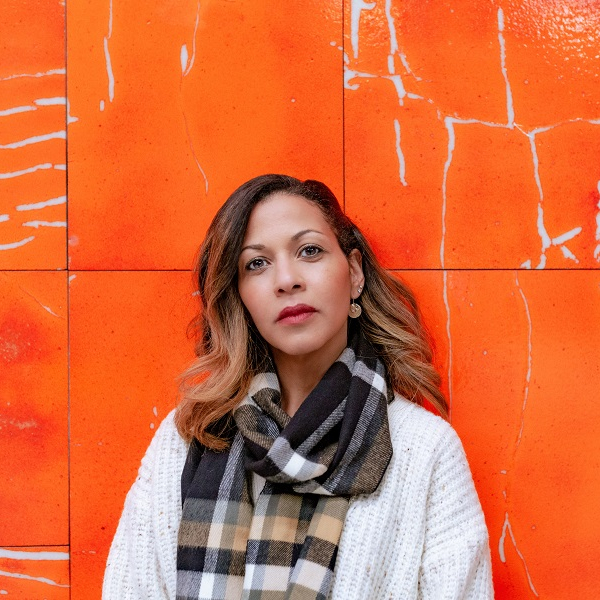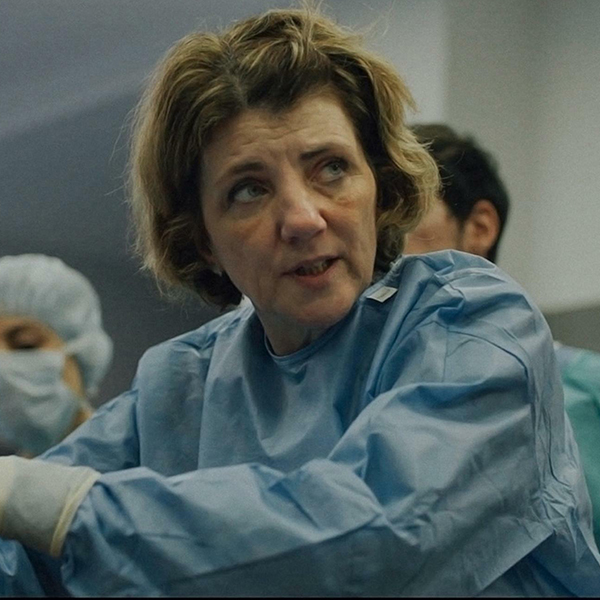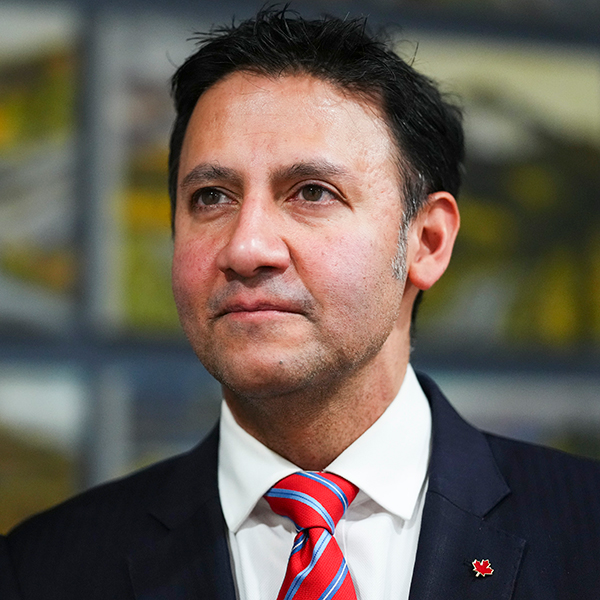Quebecers will cast their ballots on October 1 to select their next government, and for the first time since 1970, the province’s next premier might not be a member of either the Liberal Party or the Parti Québécois. According to recent polls, the Coalition Avenir Québec and the Liberals are running neck-and-neck, while the PQ is facing a powerful challenge for the allegiance of left-wing voters from the surging Québec solidaire. If the recent election in New Brunswick is any indication, voters can expect the unexpected on election night – particularly in a vote involving four viable options. In a minority government situation, the third and fourth parties might end up with a lot of clout.
More than 900 candidates have been knocking on doors during the campaign and several McGill alumni are among them. Some of those graduates play major roles for their respective parties, including Liberal cabinet ministers Carlos Leitão, BA’79, and Kathleen Weil, BA’78, BCL’82, LLB’82, and PQ deputy leader Véronique Hivon, BCL’94, LLB’94 (more on her later).
We asked alums running for each of the four major parties to answer a few questions for us.
Nicolas Chatel-Launay/Québec solidaire
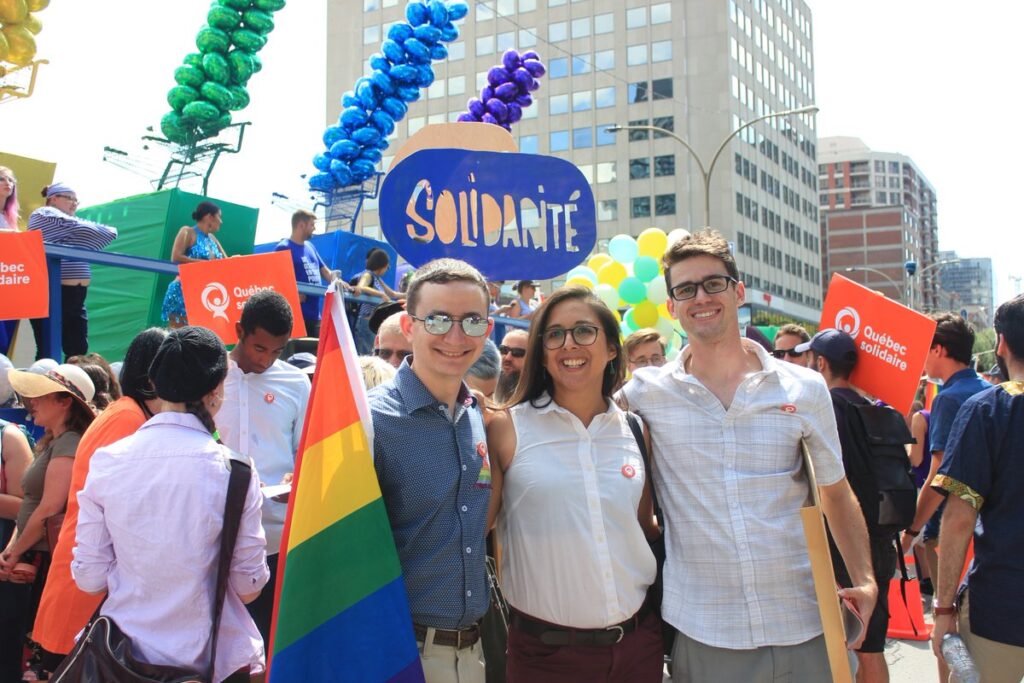
A master’s student in plant science at Macdonald Campus and a research officer with Quebec’s Centre of Excellence for Integrated Pest Management, Nicolas Chatel-Launay, BSc(AgEnvSc)’14, is running against fellow McGill graduate Gregory Kelley in the Jacques-Cartier riding. The riding includes Macdonald Campus and Chatel-Launay is one three Mac alums running for Québec solidaire in this election, along with Alejandra Zaga-Mendez, BSc(AgEnvSc)’13, MSc’16 (running in Bourrassa-Sauvé), and Philippe Jetten-Vigeant, BSc(AgEnvSc)’18 (running in Iberville). Chatel-Launay is a past president of the Macdonald Campus Graduate Students’ Society.
From what you have experienced so far, what practical advice would you give to someone running for office for the first time?
Surround yourself with good people. This is my third election as a candidate, not counting the many campaign committees I have been a part of. If I have learned something, it’s that elections are a team effort. One person is in the spotlight, but nothing would happen without the hard-working volunteers behind that person.
What is the best part of campaigning in an election? What is the most challenging part?
Meeting with the people; hearing their thoughts, their ideas, their needs and their dreams. It’s about knowing you can do something to better our world. The most challenging part is meeting those few individuals who see politics as a fight to be won, whatever the means. Thankfully, these people are greatly outnumbered by others who genuinely care, which is true in every political party.
What do you see as the most important issue in this campaign?
Environmental action. If we do not take steps to reduce our impact on the planet and adapt to the already unavoidable effects of climate change, all we have built as a society will be threatened. Much more than an issue for this election, it is the main challenge facing our generation.
What made you decide to run for office?
As an environmentalist and a biologist, I came to the conclusion that individual action is insufficient to tackle climate change and the collapse of biodiversity. I want to help bring necessary changes, and have wanted to do so since before I joined Québec solidaire in 2007.
What do you think is the biggest misconception about politicians?
That all are greedy, power-hungry narcissists. Those do exist in all parties. Yet, both within my party and amongst our adversaries, I have mostly met decent people who want to improve the lives of their fellow Quebecers. We may disagree on how life is to be improved (often vehemently), but we all want the same thing in the end: a better Quebec.
What was your favourite course at McGill and why?
Desert Ecology (WILD 475)! On top of having the coolest course code, this three-week camping trip in the desert taught me so much about biology and geology, but also about life and how to be a better scientist. And we had the Fantastic Four teaching us. I will forever be grateful to George McCourt, Jim Fyles, Ian Ritchie and the sorely missed Terry A. Wheeler.
What would be your first priority if you become a Member of the National Assembly?
[Pushing] for all MNAs to hold regular town hall meetings with their constituents. MNAs are in Quebec City to represent the people. They should know the people they represent. Creating a process to impeach MNAs that do not serve their constituents would not be a luxury either.
Which politician do you admire the most? (You can’t pick your party’s leader)
Paul Gérin-Lajoie who just died this June at the age of 98. This former Liberal cabinet minister and MNA created the public education system of Quebec, became the first minister of education, gave birth to Quebec’s diplomatic corps, was instrumental in the development of the Canadian International Development Agency and still managed to build an education-oriented philanthropy after tackling all this. Quebec and Canada would look much smaller without this brilliant selfless man.
Éric Girard/ Coalition Avenir Québec
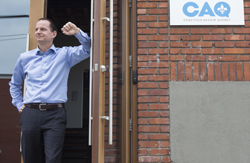
When CAQ leader François Legault introduced Éric Girard, BCom’89, as his party’s candidate for Groulx (a riding just north of Laval), he described the new candidate as an “economic heavyweight,” stoking speculation that Girard might serve as finance minister in a CAQ government. Girard has more than 25 years of experience in the fields of investment and financial markets, and recently left the National Bank, where he had been the senior vice president of corporate treasury since 2012. This isn’t Girard’s first brush with politics. A onetime member of Liberal McGill, Girard took a leave of absence from the National Bank in 2015 to run for the Conservative Party in the federal election.
From what you have experienced so far, what practical advice would you give to someone running for office for the first time?
Make sure to laugh once per day. The price to pay to be successful is very high.
What is the best part of campaigning in an election? What is the most challenging part?
Meeting the citizens is the best part. The most challenging part is the communication.
What do you see as the most important issue in this campaign?
The most important issue is the quality of services in education and health care.
What made you decide to run for office?
I always wanted to do public service. I now have the experience to make a positive contribution.
What do you think is the biggest misconception about politicians?
That they do this job for money.
What was your favourite course at McGill and why?
Advanced Macroeconomics Theory.
What would be your first priority if you become a Member of the National Assembly?
Invest in public education. The graduation rates must be improved.
Which politician do you admire the most? (You can’t pick your party’s leader)
Brian Mulroney.
Véronique Hivon/Parti Québécois
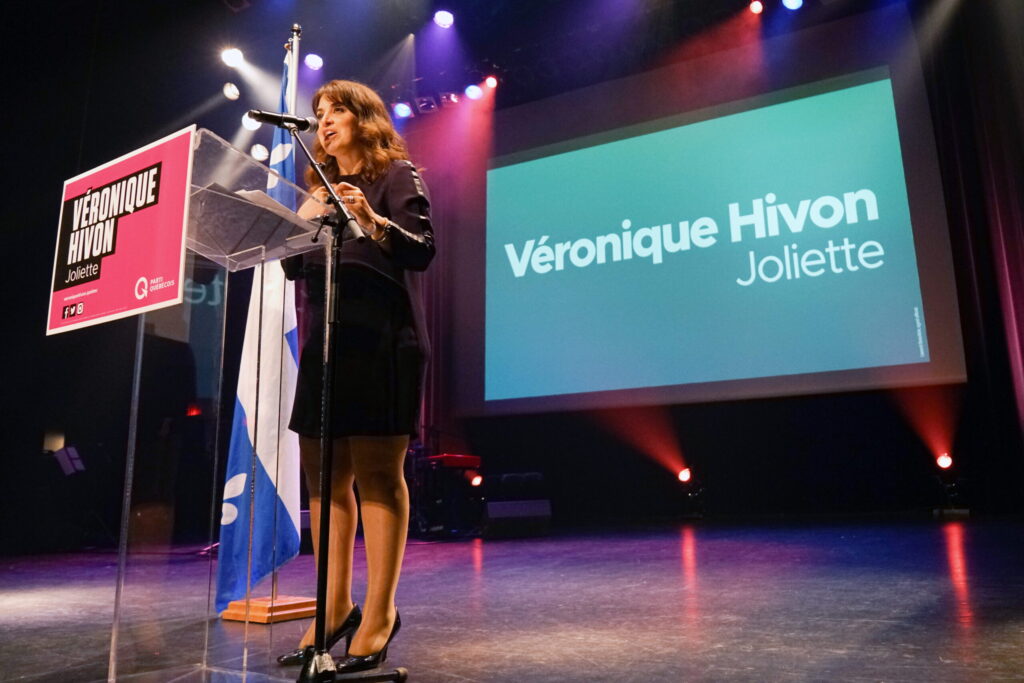
In this campaign, Véronique Hivon has been almost as visible as PQ leader Jean-François Lisée. Indeed, Hivon’s name prominently appears on PQ campaign signs along with Lisée’s and she is slated to become deputy premier should the PQ win the election. In a recent profile that appeared in The Montreal Gazette, the paper described Hivon as “the perfect foil for Lisée,” adding, “it’s hard to overstate how much of an impact Hivon has had on the campaign.” As a cabinet minister, Hivon was the driving force behind Quebec’s end-of-life care bill, the first of its kind in the country.
From what you have experienced so far, what practical advice would you give to someone running for office for the first time?
To stay focused on our objectives, which of course reflect our values and convictions, as well as to remind ourselves often as to why we made the jump into politics in the first place. Campaigns can be a real whirlwind, with a lot of distractions and enormous pressure, and there are always many unforeseen events, so while being able to adapt to those events, we have to stay grounded in our motivations.
What is the best part of campaigning in an election? What is the most challenging part?
The best part of it is the energy that people give you, in the rallies and other activities, or seeing the passion in the volunteers who work every day on the campaign. Seeing them, so enthusiastic, working for what they believe in and the vision of the society they want to see happen, it fills me with energy and pride. As for the most challenging part, it’s a cliché, but I would say the work-family balance. We work long hours, with many unforeseen issues that just come out of nowhere, or changes in schedule, and that means we spend a lot of time away from those we love and sometimes that can be so difficult, especially with young children. But in the end, we manage to do our best to keep a certain balance.
What do you see as the most important issue in this campaign?
Quebec is at a crossroads. After 15 years under a Liberal regime, we have the choice to continue to weaken our public services with two right-wing parties, or to opt for a strong, reliable, and effective government, which has at its heart the plan to reinvest in public services, to have accessible health care for everybody and an educational system which puts academic success front and center. We have the choice for more social justice, equality between people, inter-generational cooperation, and local awareness. We want to have a government with both a heart and a mind, with a vision for Quebec that not only takes care of the here and now, but will pave the road for a prosperous future. This is what we are proposing at the Parti Québécois.
What made you decide to run for office?
I really wanted to run for office in order to be able to follow through on my commitment to social justice and Quebec sovereignty, which are causes I believe in. I also thought that it was necessary to try to make changes from the inside of the political world and this is something I’ve really taken to heart.
What do you think is the biggest misconception about politicians?
There’s a big misconception that politicians are far from the real world and far from the real people, and that many of them are only there for their own interests, or to seek power for themselves. For most of them, from all the parties, you tend to see that people who run for office are really there to make a difference. Sometimes, we might disagree on what society needs, but politicians, for the most part, really want to do the best job possible to improve the lives of the people they serve.
What was your favourite course at McGill and why?
There were two courses that I really enjoyed when I was there. One was criminal law, with Professor Nicholas Kasirer, who is now a judge at the Court of Appeal. He was able to go beyond the basics and to really show the philosophy behind our criminal law. Also, I enjoyed the medical liability, ethics and medical law courses. For some of those classes, Margaret Somerville was my professor. Years later, when I was a minister in charge of the bill on end of life care, she was an advocate against medical assistance in dying, so we met at the hearings of our parliamentary committee and we had many exchanges. As an ex-student facing my ex-professor, it was quite interesting.
What would be your first priority if you become a Member of the National Assembly?
My first priority will be to increase our investment in education. Also, focusing on our children in educational daycare (centres de la petite enfance), making sure that we have a minimum threshold of professionals in our schools to accompany the ones who have learning difficulties, and having a shield-law which will ensure that no cuts can be made, whatever the circumstances or government, in the education system. And, if I had a second priority, I would talk about creating, in the aftermath of the #MeToo movement, a specialized tribunal on sexual violence and domestic violence crimes, to make sure that victims can feel more taken into account in the system, and that there is a place where everybody is trained specifically to deal with these types of cases.
Which politician do you admire the most? (You can’t pick your party’s leader)
I would say Gérald Godin, for the bridges he built between communities and his vision for the integration of newcomers. His ideas were so modern and they are still very relevant. He was a man of heart, conviction, and also a poet, really a unifying and inspiring man.
Gregory Kelley/Liberal Party
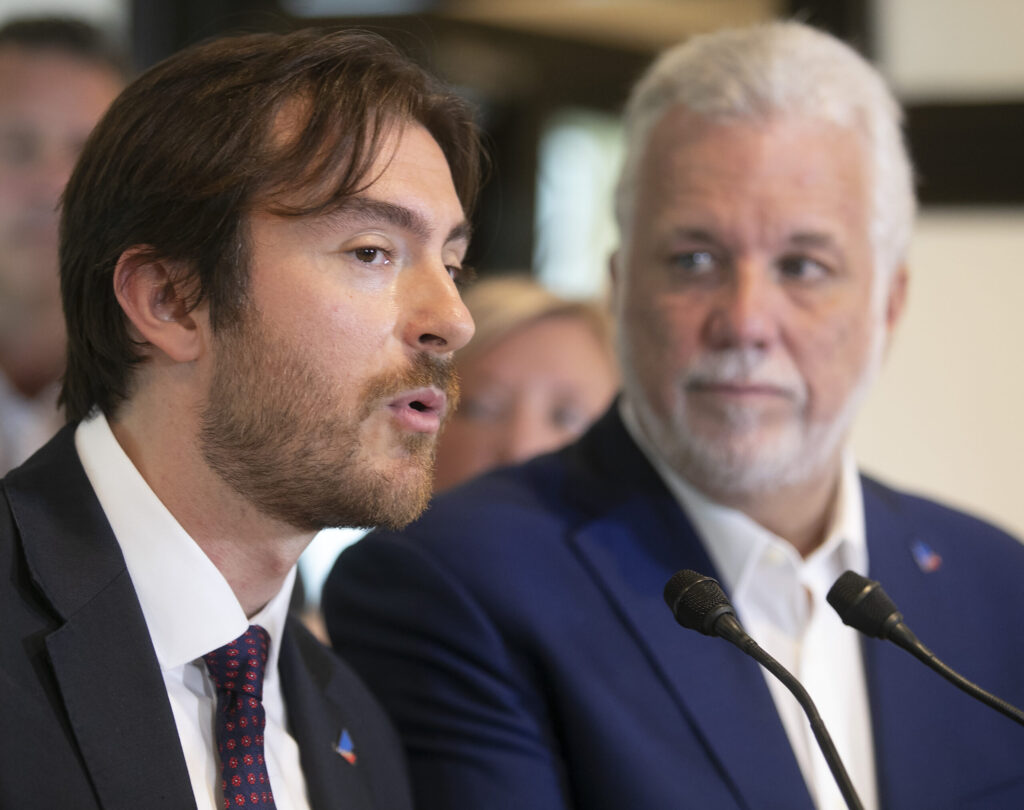
Although veteran cabinet minister and longtime Liberal MNA Geoffrey Kelley, BA’81, MA’85, served notice that he was stepping away from politics, voters in his Jacques-Cartier riding will still have the opportunity to cast their ballots for a Liberal named Kelley. Gregory Kelley, BA’09, Geoffrey’s son, is running for the Liberals this time around. The younger Kelley grew up in the riding and became an active part of the Couillard government last year when he took on the position of official liaison for the English-speaking community in the Premier’s Office. When Kathleen Weil was appointed minister responsible for relations with the English-speaking community earlier this year, Kelley joined her office.
From what you have experienced so far, what practical advice would you give to someone running for office for the first time?
I think first and foremost you need to be persistent; you need to want to be the candidate, be ready to fight for it and most importantly to fight for the constituents you ultimately want to represent. Before taking the plunge into politics, try to better understand the issues of your area. By being aware of the different issues, you can better connect with people on the campaign trail.
What is the best part of campaigning in an election? What is the most challenging part?
The best part of campaigning is having the opportunity to meet with different people, community organizations and local business and hear their stories and concerns.
The most challenging part is that campaigning is fast-paced and you need to be quick on your feet. People ask tough questions and if you don’t have the answer you need to be honest and go find that answer.
What do you see as the most important issue in this campaign?
The economy. After four years, people need to ask themselves, “Are we better off today than we were four years ago?” I think after adding over 200,000 jobs, the economy is heading in the right direction and we need to continue on the same track that we are on.
What made you decide to run for office?
I wanted to serve the people of Jacques-Cartier, and represent their interests at the National Assembly. I want to give back to the community that has given me so much.
What do you think is the biggest misconception about politicians?
That they don’t work hard. I can say that as the son of a former Member of the National Assembly and cabinet minister, it’s definitely a misconception. There is no doubt that the job is a privilege, but it is time consuming. They spend a lot time away from home, from their families. People don’t always see the work that our elected officials do in parliamentary committees, the weekdays spent in Quebec City and weekends spent at local events.
What was your favourite course at McGill and why?
I had lots of amazing professors at McGill where I studied history and political science. To answer your question, I can’t just choose one, but I can say that both courses on World War 1 and World War 2 offered by Professor Peter Hoffmann were my favourites. I always had a deep interest in Canada’s role during both world wars, so I found his courses very fascinating and I continue to read books on those eras of history.
What would be your first priority if you become a Member of the National Assembly?
My priority would be to represent the interests of my constituents. Throughout the campaign trail, I had many conversations with the residents of my riding and I listened, intently. Questions on healthcare, education, climate change and transportation, to name a few, were frequently brought up and I will do my best to make those concerns heard at the National Assembly.
Which politician do you admire the most? (You can’t pick your party’s leader)
Barack Obama is the politician that I admire the most. He was a fighter and broke down so many barriers. He inspired me with how humble and empathetic he remained as president and he always had a message of hope and for a better tomorrow.
